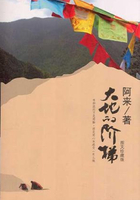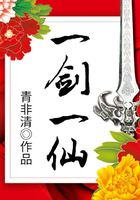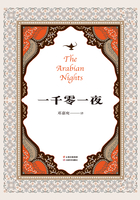For the further information of the reader, as to the dread of the prisoners of work in the mines, I cite the following which I call to recollection. The gentlemanly physician of the institution, Dr. Neeally, told me that at four different times men had feigned death in the mines and had been carried on stretchers to the hospital; the particulars in one case is as follows: One of these men feigned death and was carried to the hospital, and was reported by his comrades to be dead. He had suppressed his breathing. The physician felt his pulse, and finding it regular, of course knew he was simply endeavoring to deceive. In order to experiment, the physician coincided with the statements of the attending convicts who had carried him from the mines, and announced that he would try electricity, and if he failed to restore him to life he would then have to bury him in the regular way. The doctor retired for the purpose of getting his electrical apparatus. In a few moments he returned, bringing it with him, and placing the magnetic cups, one in each hand, commenced generating the electricity by turning the generator attached to the machine. After a few turns of the crank the prisoner opened his eyes; one or two more and he sat up; a few more and he stood on his feet; another turn or two and he commenced dancing around, and exclaimed, "For God's sake, doctor, do quit, for I ain't dead, but I can't let loose!" Reader, what do you suppose was the object this convict had in view in thus feigning death? What did he hope to gain thereby? Being well acquainted with this prisoner, a few days after the doctor had told me of the circumstances I met him, and asked him what object he had in feigning death the time that he was taken from the mines to the hospital? His reply was that he hadn't the nerve to take his own life, as he believed in a future state of punishment, and that he did not desire to step from the Kansas Hell to the hell of the future, and that by feigningdeath he hoped to be taken to the hospital, placed in a coffin, then taken out to the prison graveyard, and buried alive, so that he would suffocate in his grave!
There is not a man in those mines but would leave them quickly for a place on the surface.
I now call to mind one instance where a heart-broken father came to the prison and offered one of the leading prison officials one thousand dollars if he would take his son out of the coal mines and give him a place on the surface during the remainder of his term. A man who labors in these mines simply spends his time, not knowing but the next hour will be his last.
As I have stated heretofore the prisoners are allowed to converse in the mines, and as a result of this almost necessary rule, every convict has an opportunity to listen to the vilest obscenity that ever falls upon human ears. At times, when some of these convicts, who seem veritable encyclopedias of wickedness, are crowded together, the ribald jokes, obscenity and blasphemy are too horrible for description. It is a pandemonium--a miniature hell! But worse than this horrible flow of language are the horrible and revolting practices of the mines. Men, degraded to a plane lower than the brutes, are guilty of the unmentionable crimes referred to by the Apostle Paul in his letter to the Romans, chapter I, verse 27, which is as follows: "And likewise also the men, leaving the natural use of the woman, burned in their lusts one toward another, men with men, working that which is unseemly, and receiving in themselves that recompense of their error which was meet." Every opportunity is here offered for this vile practice. They are far removed from the light and even from the influences of their officers, and in the darkness and silence old and hardened criminals debase and mistreat themselves and sometimes the younger ones that are associated with them in their work. These cases of self-abuse and sodomy are of daily occurrence, and, although the officials of the prison take every precaution to prevent such evil practices, yet, as a matter of fact, so long as prisoners are permitted to work in the mines it will be impossible to break up these terribly degrading and debasing practices. Oh, Kansan! you that boast of the freedom and liberty, the strength of yourlaws, and the institutions in your grand young State, what do you think of this disclosure of wickedness, equalling if not excelling the most horrible things ever pictured by the divine teachers of humanity,--the apostles and their followers? A hint is only here given, but to the wise it will be sufficient, and but a slight exercise of the imaginative powers will be necessary to unfold to you the full meaning of this terrible state of affairs.
It is believed by the writer that if the people of the State of Kansas knew under what circumstances men in the prison were compelled to work, there would be a general indignation, which would soon be expressed through the proper channels, and which might lead to a proper solution of the difficulty.
In many of the rooms of the mines there are large pools of water which accumulate there from dripping down from the crevices above; this, taken in connection with the natural damps of the mines, which increases the water, makes very large pools, and in these mud-holes convicts are compelled to work and wallow about all day long while getting out their coal, more like swine than anything else. How can this be in the line of reformation, which, we are taught to believe outside of the prison walls, is the principal effort of all discipline within the prison. The result of work under such unfavorable circumstances is that many of the convicts contract rheumatism, neuralgia, pneumonia and other lung troubles, and, of course, malaria. Many persons that enter these mines in good health come out physical wrecks, often to find homes in the poor-houses of the land when their prison days are over, or die before their terms expire. In the judgment of the writer the coal mines should be sold; until that is done, prisoners who contract diseases there that will carry them to untimely graves should be pensioned by the State, and thus kept from spending the rest of their natural lives in some of the country poor- houses.
Each person in the mines is assigned a task; he is required to get out a certain amount of coal each week. In case the convict fails to mine the task that has been assigned him he must endure punishment, a description of which will be given later on. It is the opinion of the author that something should be done to remedy this. The young men from seventeen to twenty, together with the old men from fifty to sixty, and those suffering fromdiseases, are often required to dig as much coal as middle-aged and able- bodied men. I have seen old men marching to their cells after a hard day's work scarcely able to walk, and many times have I laid in the mines along with these young boys who would spend hours crying like whipped children for fear they would be unable to get out their regular task of coal, and would therefore have to spend the Sabbath in the dungeon, suffering unspeakable anguish.
Because of the dangers to which the inmate is exposed; because of the debasing influences by which lie is surrounded, it is wrong, it is WICKED to work our criminals in such a place as those mines of the Kansas penitentiary.















